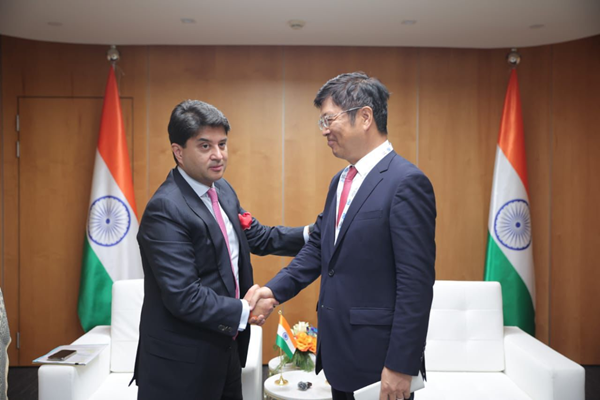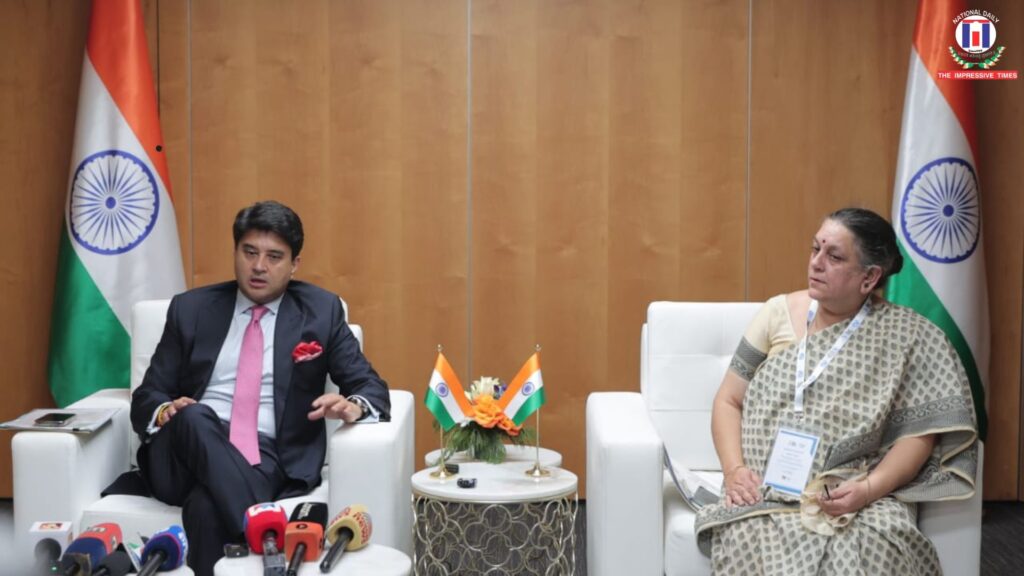India has once again demonstrated its leadership on the global stage by playing a pivotal role at the 28th Universal Postal Congress, one of the world’s most significant forums dedicated to shaping the future of international postal services. The congress, which brings together representatives from nearly 190 member countries, provides a platform for setting policies, adopting strategies, and modernizing postal systems in line with global technological and economic shifts.
India’s proactive participation at this event underscores its commitment to building a resilient, technology-driven postal ecosystem that supports not only communication but also trade, financial inclusion, and digital transformation.
What is the Universal Postal Congress?
The Universal Postal Congress (UPC) is the supreme decision-making body of the Universal Postal Union (UPU), a specialized agency of the United Nations responsible for coordinating global postal policies. Held every four years, the congress defines the roadmap for the international postal sector by debating reforms, adopting conventions, and addressing challenges faced by postal operators worldwide.
The 28th edition comes at a crucial time, as postal services globally are transitioning from traditional mail delivery to broader roles, including e-commerce logistics, financial services, and digital innovations.
India’s Leadership Role
At the 28th Universal Postal Congress, India emerged as a key voice driving the agenda for modernization, inclusivity, and innovation. The Indian delegation, backed by the Department of Posts (India Post), emphasized the following priorities:
- Leveraging Digital Infrastructure: India showcased how its IT 2.0 reforms and Aadhaar-enabled systems have transformed India Post into a digital backbone for inclusive services.
- E-commerce Integration: Advocating for stronger global postal cooperation in handling the surge in e-commerce, India pushed for reliable cross-border logistics and transparent pricing.
- Financial Inclusion: With India Post Payments Bank serving millions, India highlighted the role of postal networks in extending financial services to underserved populations.
- Sustainability Goals: India supported global commitments to reduce the postal sector’s carbon footprint, emphasizing eco-friendly delivery practices.
By positioning itself as both an innovator and a representative of emerging economies, India balanced the needs of developing countries with global best practices.
Key Highlights of the Congress

- Postal Reforms for the Digital Age
India contributed to discussions on aligning postal services with digital innovations such as AI, blockchain, and real-time tracking systems. These reforms are intended to make postal systems faster, more secure, and customer-friendly. - Cross-Border E-commerce
With global e-commerce expected to exceed $8 trillion by 2030, India stressed the need for postal services to build partnerships with online retailers and streamline customs and delivery processes. - Sustainability Initiatives
The congress placed strong emphasis on reducing carbon emissions in postal networks. India showcased pilot projects using electric delivery vehicles and solar-powered post offices. - Universal Service Obligation
India reminded member nations of the need to balance modernization with universal access, ensuring that even the remotest communities continue to benefit from reliable postal networks.
Why India’s Role Matters
India’s leadership is significant for several reasons:
- World’s Largest Postal Network: India Post has over 1.5 lakh post offices, the largest in the world, making it a unique case study in managing large-scale services.
- Digital Transformation: Initiatives like India Post IT 2.0 have enabled Aadhaar-based authentication, financial inclusion, and real-time tracking of parcels.
- E-commerce Growth: India’s booming e-commerce sector relies heavily on India Post’s last-mile delivery network, making it a critical player in global logistics.
- Voice for Developing Nations: India represents the challenges and opportunities of emerging economies where postal systems are vital for inclusive development.
Benefits for India from the Congress
Participation in the Universal Postal Congress allows India to:
- Shape Global Policy: Ensure that global postal reforms reflect the needs of developing nations.
- Boost Trade: Facilitate smoother cross-border e-commerce and exports by influencing pricing and logistics standards.
- Attract Investments: Position India as a hub for global postal and logistics innovation.
- Strengthen Digital India: Align India Post with global digital transformation strategies.
Challenges Ahead
While India’s leadership at the congress is commendable, the postal sector faces certain challenges:
- Declining Mail Volumes due to digital communication.
- Competition from Private Couriers in the logistics sector.
- Funding Requirements for upgrading technology across a vast network.
- Sustainability Pressure to shift towards green energy and reduce emissions.
India’s strategies at the congress emphasized turning these challenges into opportunities through digitization, partnerships, and innovation.
The Global Impact of India’s Agenda
India’s proposals and leadership at the 28th Universal Postal Congress will have long-term implications not only for the country but also for the world:
- Improved cross-border delivery systems that support international trade.
- Stronger global focus on financial inclusion through postal networks.
- Greater commitment to sustainability in postal operations worldwide.
- Adoption of digital-first approaches, inspired by India’s experience.
Looking Ahead: Roadmap for India Post
India Post’s future strategy, aligned with the outcomes of the Universal Postal Congress, includes:
- Expanding parcel and e-commerce logistics capabilities.
- Integrating AI and machine learning for predictive delivery and fraud detection.
- Scaling up green delivery solutions, such as electric bikes and renewable-powered offices.
- Strengthening India Post Payments Bank to serve as a financial inclusion model globally.
By aligning with global postal reforms, India Post is poised to become a leader not only in national service but also as a partner in global trade and technology-driven logistics.
Conclusion
The 28th Universal Postal Congress marked a defining moment for India as it stepped up to shape the global postal agenda. With its vast experience, digital transformation, and commitment to inclusive growth, India has shown how postal services can evolve into engines of economic development and innovation.
As the world moves toward a more digital and interconnected future, India’s leadership ensures that postal networks remain relevant, resilient, and sustainable—bridging not only distances but also opportunities.
India’s active role is not just about reforming postal systems; it is about creating a roadmap for global connectivity, financial inclusion, and sustainable development in the 21st century.

